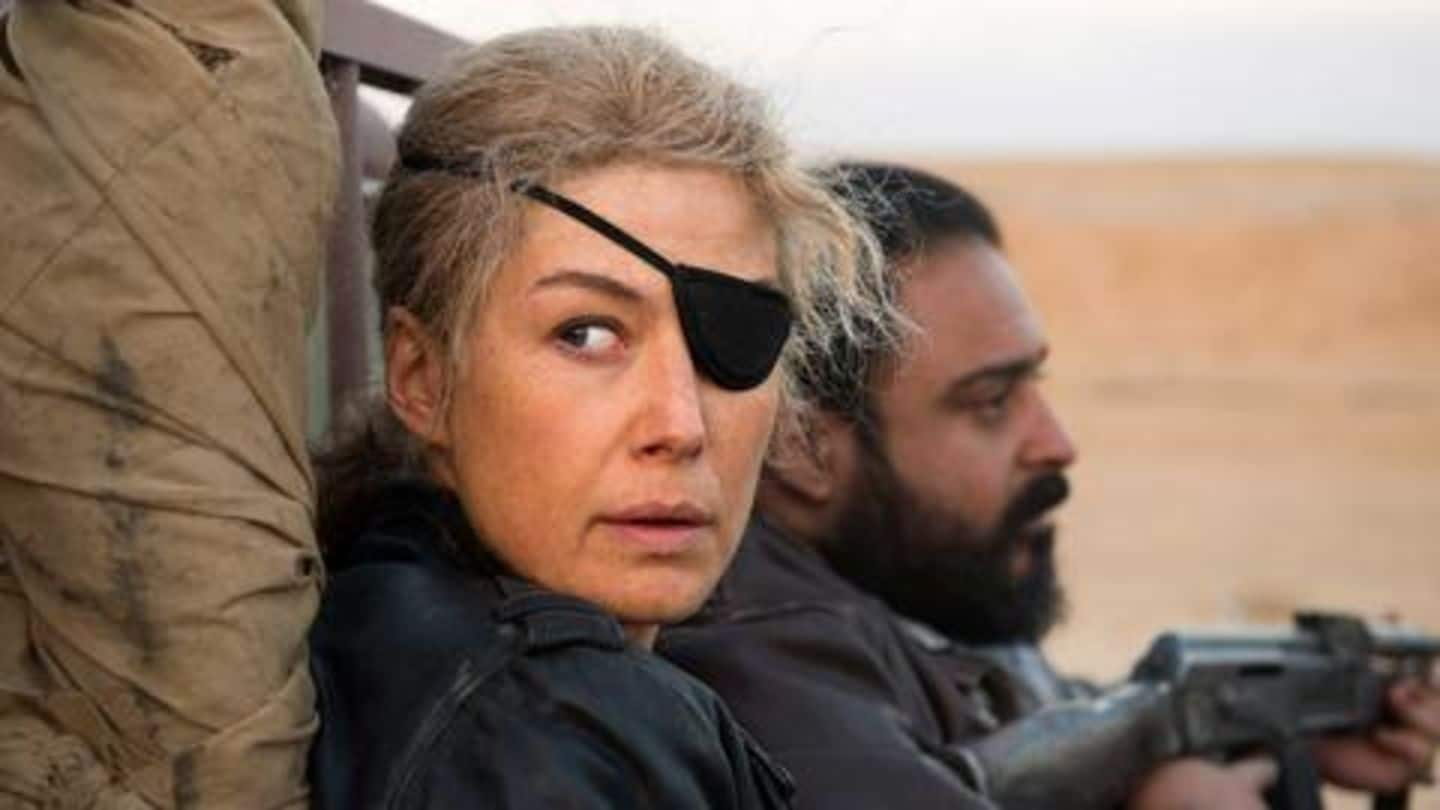US court orders Syria to pay $302mn for journalist's murder
What's the story
On Wednesday night, a court in Washington slapped the Syrian government with $302mn in damages for the death of journalist Marie Colvin.
A long time correspondent for British publication The Sunday Times, Colvin had met her death in an artillery barrage on February 22, 2012 while covering the conflict in war-torn Syria.
Here are the details.
Personal
A bit about Marie Colvin
A famed journalist, Colvin covered conflicts Chechnya, Kosovo, Sierra Leone, Zimbabwe, Sri Lanka and East Timor, apart from Syria. In 2001, she was blinded in her left eye from a grenade explosion in Syria, and wore a black patch. It became her signature look. The 2018 film, A Private War, was based on her life.
Shelling
The shelling that resulted in Colvin's death
A veteran journalist with extensive experience in covering conflicts, 56-year-old Colvin was killed during a sustained artillery barrage on an apartment complex housing a makeshift media center in the city of Homs in Syria.
During the attack, French photographer Remi Ochlik had also been killed.
Despite initially being labelled an accident, it has now been established that Colvin was targeted by the Syrian Army.
Lawsuit
Why Colvin's sister decided to press charges
Colvin's sister, Cathleen, had initially assumed that Colvin's death was a tragic accident that could befall anyone in a warzone.
However, she later decided to pursue a lawsuit against the Syrian government after speaking with Paul Conroy, a photographer who was working with Colvin.
Conroy, a British Army veteran who was injured in the same shelling, was confident that the journalists had been targeted.
Quote
Syrian government targeted journalists to stem the rebel uprising: Cathleen
"It was part of the government's strategy in putting down the uprising. They prioritised taking out the journalists," Cathleen Colvin told media.
Investigation
Investigations into Colvin's death revealed Syrian government's hand
Investigations into Colvin's death subsequently revealed that a fax from Syria's National Security Bureau, in August 2011, had instructed security bodies to launch military and intelligence campaigns against "those who tarnish the image of Syria in foreign media and international organizations".
It was also found that an informant had provided the Syrian government with the location of the makeshift media center a day before the attack.
Verdict
Colvin's death was then labelled an 'extrajudicial killing'
Citing the aforementioned evidence, and more evidence about Syrian officials celebrating the attack on the media center, US District Court Judge Amy Berman Jackson concluded that the media center had been deliberately targeted by the Syrian military on the instructions of the Syrian government.
Labelling Colvin's death as an "extrajudicial killing", Jackson then slapped the Syrian government with $302mn in damages.
Recovery
$302mn might be recovered from the Syrian government
Although foreign governments enjoy freedom from the jurisdiction of US courts under the Foreign Sovereign Immunities Act, there are exceptions.
Immunity is lifted in the event of alleged crimes against American citizens by foreign governments, something that is classified as "state sponsor of terrorism".
Given this provision, lawyers for Colvin's family will attempt to recover the $302mn by targeting frozen Syrian government assets overseas.
Do you know?
Over 110 journalists have died in the Syrian Civil War
Colvin and Ochlik weren't the only journalists who met their death during the Syrian Civil War. According to the Doha Center for Media Freedom, 110 professional or citizen journalists died during the war. The Syrian Journalists' Association puts the figure at 153.
